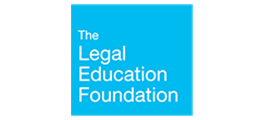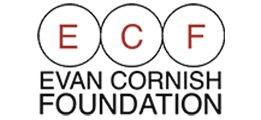There’s really no such thing as the ‘voiceless’. There are only the deliberately silenced, or the preferably unheard. – Arundhati Roy, 2004
On 1 June 2016 academics, lawyers, social workers, health practitioners, NGO workers, policy officials, activists, and a host of others gathered to hear about and discuss the situation of children and young people affected by lack of citizenship or other ‘lawful’ status in the UK. The occasion: the Precarious Citizenship conference, organised by MiCLU in conjunction with Birkbeck University.
The day packed in a large number of speakers, some bringing decades of experience to discuss topics ranging from challenges to becoming a British citizen, barriers to legal aid, homelessness, foster care and transitions to adulthood, anti-racism activism, to policy and legal challenges. The conference-goers heard about lawyers failing to identify the correct immigration status, GP surgeries wrongly refusing registration, social workers wrongly refusing care leavers help if they weren’t in full time education, young people being excluded from college, the mental health toll of this all on the young people concerned, and officials refusing simply to recognise children as children.
But the most important voices heard on the day were those of the young people who attended, who boldly and powerfully expressed their experiences, challenges, needs and hopes through moving and personal performances and presentations. Young people from Brighter Futures, the Prince’s Trust and Let Us Learn reached out to the conference audience with their personal accounts, explaining how a precarious status in one area affects every other area, so immigration has an impact on every aspect of life from going to college, finding housing, getting a driver’s licence, going to a bank, buying a knife to cut vegetables with, or just being able to enter a club with friends as other young people do. “Things that are every day for others are like climbing Mount Everest for us,” is how one young person described being undocumented. “’I cannot remember a day when I did not have to pull myself together,” said another.
Repeated over the course of the day was the concept of invisibility: people are invisible, hidden, voiceless, or rather, silenced. One young man asked not to be called undocumented, but forgotten. Several speaking challenged the definition of citizenship. As Francis Webber reminded in her reflections on the day, citizenship is not just a legal status, but it is a state of belonging. For the young people present, most of whom were born in the UK or spent most of their formative years here, there was no doubting where they belong. Yet, as Webber said, their precarious status is not accidental – it is produced by policy, the product of a calculatedly hostile environment. All in the context of the ‘migration crisis’ (which, as Nando Sigona explained using straightforward statistics, and despite media attempts to convey the contrary, has not in fact reached Britain’s shores).
Inevitably, much of the day was devoted to a discussion and deeper understanding of the problems, but the need for solutions and for action were constantly returned to. Let Us Learn spoke about their inspirational advocacy work lobbying for the right of “undocumented” young people to an education. The context of historic struggles against racism, both in the UK (youth activism against racism and sexism in immigration control) and in the US (the broader movement that grew out of the defeat of the Dream Act) was drawn upon.
Above all, participants left with a palpable feeling that more needs to be done and there was an energy that needs to be harnessed. Ideas were raised about organising, connecting with unions, civil rights and anti-war movements, intergenerational organising and providing more resources for young people to set up campaigns. An umbrella group was suggested.
We have set up a page with resources from the conference, where you can view presentations, listen to podcasts and experience the day through a Storify presentation. The conference was part of MiCLU’s Responsibility Shared programme of legal education, and, along with Birkbeck University, we will be looking at how to keep participants connected and ways to build on the momentum of the conference. The voices need to be heard, and they need to be acted upon.









